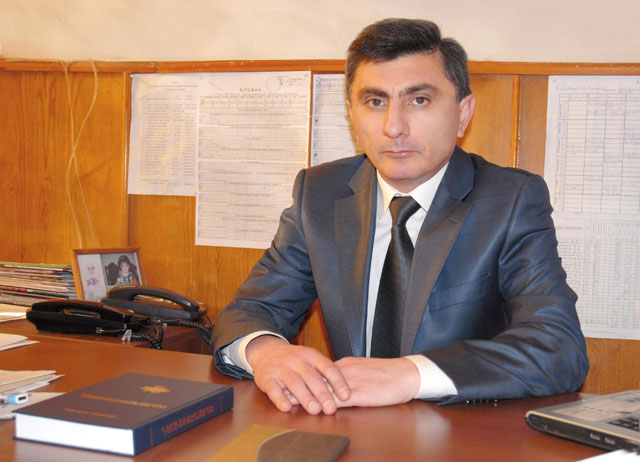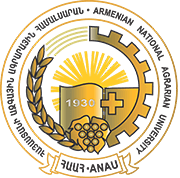
Andreas Melikyan
Doctor of Sciences, Professor
Director
Contacts
- 74 Teryan Str., 0009, Yerevan, RA
I building, room #210 - (+374) 12 56 38 40, int. 4-46
- [email protected]
History and Objectives
Inspired by Vavilov, Grosgheim, Tumanyan and others’ research works, conducted in 1930, professor P.A. Ghandilyan founded the research laboratory of cultivated plants and the gene pool of their wild relatives in 1981 and headed the lab till 2001. Young and talented specialists (J. Shakaryan, M. Harutyunyan, H. Martirosyan, M. Hovhannisyan, A. Avagyan, I. Avagyan, H. Matevosyan, H. Mirzoyan, H. Khachatryan, L. Mkrtchyan, R. Martirosyan, A. Melikyan) organize different kinds of experiments in the laboratory.
A. Sh. Melikyan, doctor of agricultural sciences, professor, has headed the lab since 2011.
H. Martirosyan, M. Harutyunyan, M. Hovhannisyan, S. Grigoryan, H. Terteryan, N. Gasparyan, A. Tadevosyan, T. Aloyan, L. Petrosyan continue their researches. Their activity includes:
- Collection enrichment of wild types of crops in Armenia and their ex situ conservation (long-term and short-term)
- Monitoring organization (GIS mapping) on wild crop relatives in the most important areas
- A range of corn and vegetable growing by using their wild relatives in selection
- Culturization of wild herbs and spice plants used as food
- Recovery and improvement of aboriginal ancient sorts (wheat and barley) and sort-populations (onion, garlic, beans)
- Continuing pre-selection works (wheat, wheaten, rye, onion, garlic)
- Genetic researches on agrobiological characteristics of conserved samples
- Investing seed collection data in the international database to ensure their accessibility.
The center’s seed collection includes more than 5500 samples. 2600 samples are wild, the rest are local sort samples or sort-populations or weew received from different international scientific centers. 1457 sheets of various herbivorous are also preserved. The collection consists from the following groups
- Cereals – wheat, barley rye, oats,
- Beans – lentils, peas, beans, asparagus, beet, lettuce, etc,
- Vegetables –onion, carrot, asparagus, Beta, Lactuca, etc,
- Fruits – pear, apple, hawthorn, pomegranate, moonberry, freckles, strawberry, blackberries, blueberries,
- Fodder siliquastrum – Onobrychis, Clover, vic, Lathyrus etc,
- Herbs and aromatic plants – chamomile, wrot, sieve, Plantago, chicory, etc.
Selection works are also conducted actively, and parental types of wild crops are used, such activity is being conducted only at the cneter. Here the seeds of wheat Voskehazk, barberry Ararat 7, Hayk 1 and Marina, Sis 1 of wheat, Arpi and Arevik, Syunik 1, Garlic Dzyunik and Onion Armavir varieties are cultivated.
These are strikingly resistant to dryness and drought-tolerance, disease and pest, for which genes are inherited from wild parents.
At the center estimation of ex situ conservation of available samples’ is carried out. All data is being entered into appropriate bases that increases international access to information about the gene pool in Armenia.
The Research Center has scientific relations with international organizations such as ICARDA, CIMMYT, Biodiversity International, Slovak Agricultural University (Nitra), Plant Research Center (Piestany), Japan, Russia (VIR, St. Petersburg), Novosibirsk Institute of Cytology and Genetics).
Svalbard Global Seed Vault, Norway, CIMMYT (International Center for Wheat and Corn Chickens, Mexico), ICARDA (International Center for Dry Farming, Tunisia) have been preserved in numerous collections of samples from the center.
Evaluation, monitoring and mapping of GHA spreading patterns are continued by the GIS system. Agrarian University cooperates with the Plant Gene Pool and Selection Research Center to join GBIF, the ultimate goal of which will be barcoding the samples stored in the center and publish in the GBIF network.
The research center is also a place where scientific personnel are being prepared. According to the studies conducted at the center many doctoral thesis and dissertations are defended.
The Facebook account of the center is actively conducted: (https:/www.facebook.com/pgrlab.anau).



